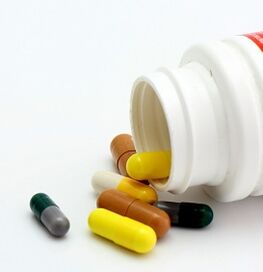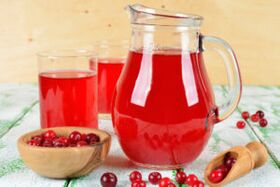
The urine system is often exposed to infections.One of the most common infectious diseases of the urinary tract is cystitis.What to do with women's cystitis?The treatment of pathology should begin with the first symptoms.In the absence of therapy, the disease acquires a chronic form, which is much more difficult to cope.
Provocative factors and symptoms of the disease
Cystitis is an inflammatory disease that develops in the bladder area.The disease is most often diagnosed in women, but male cystitis is not excluded.
Cystitis is caused
- Streptococci;
- Escherichia sticks;
- Staphylococci;
- and others.
The infection may be the result of the irregularity of hygiene norms for the care of the genitals or the result of the inflammatory process.Pathology is also sexually transmitted (ureaplasma or mycoplasma).
In the case of cystitis, the patient has symptoms:
- pain in the urination process;
- attack of sudden pain in the lower abdomen;
- feeling of incomplete destruction of urine;
- urinary fluid incontinence;
- The urine is muddy;
- urine emissions with blood;
- Temporary fever up to 38 degrees.
In women, cystitis treatment is carried out on an outpatient basis by taking medicines.When completing the treatment at the initial stage of treatment, the disease can be eliminated without complications.
Choosing the Treatment Tactic

The effectiveness of therapeutic measures depends on how the diagnosis is made.The determination of the cause of the pathology (identification of the type of infection) also plays an important role.With the development of a chronic or acute form of cystitis, the drugs have no effect and the infection is progressing and provoking the diseases of the kidneys and genitals.
The main task of professionals involved in the therapy is to prevent the inflammatory process by destroying pathological microorganisms of the urinary tract damage.
The choice of cystitis medication is only involved in a doctor, taking into account the characteristics of women's illness:
- type of infection;
- The degree of disease development;
- Individual characteristics of the body (age, gender, weight);
- the presence of contraindications;
- The tendency to manifest a harmful reaction.
An important consideration is to determine the reaction of pathological microorganisms to the composition of the drug.For this, a special examination is performed to create the most appropriate drugs.
A competent approach to treating cystitis
Medicinal treatment includes the complex of drugs of different groups.A woman from cystitis is prescribed not only to destroy the infection, but also to prevent inflammation and to reduce the intensity of the symptoms.
With complex therapy, medicines are recommended for groups:
- antibiotics;
- herbal preparations;
- Antispasmodes;
- anti -inflammation;
- Probiotics.
In order to treat women to more effectively, women are used to adhere to special diets and monitor hygiene measures.
Antibiotics
Antibacterial drugs that help prevent the progression of cystitis infection in cystitis.
Antibiotics strongly affect the weight of the body and are therefore desirable only to take them in the manner prescribed by the doctor.
Herbal medicines
Fitoprreparations have a lower effect than antibiotics, but their toxic effects are less, so their use is allowed during pregnancy (with a special solution).
In women, cystitis based on natural composition is used in combination with antibiotics.Thus, treatment and recovery are faster.
Collision
In the case of cystitis, the patient is often worried about urinary rollers, especially during urination.To eliminate pain and cramps, we recommend a woman for cystitis drugs with Drotaverin.
Symptomatic treatment is recommended to take Drotaverine -containing drugs.Short-term bet is possible (2-3 days).
Anti -inflammatory drugs
In addition to antibiotics, anti -inflammatory drugs that prevent complications, especially due to increased risk of kidney inflammation, can be prescribed for patients with cystitis.
The drugs of the anti -inflammatory group are often prescribed for a time administration with the intensity of increased symptoms (pain or temperature).
Probiotics
In most cases, the use of antibiotics leads to a violation of the functionality of the stomach because the drugs have been practiced on the wall of the stomach tract.In order to facilitate the functioning of the digestive system, the joint intake of probiotics is required for the treatment period.
Taking probiotics reduces the risk of harmful reaction to drugs from the stomach tract.
Contraindications and side effects
Medicines for treating cystitis should be chosen in women, taking into account potential contraindications.In the therapy process, the patient may also express symptoms of an undesirable reaction due to contraindications that exceed the recommended dosage or the possible individual reaction to the body.
Contraindications:
- individual sensitivity to ingredients;
- many chronic diseases;
- impaired kidney or liver functions;
- Problems of the central nervous system.
Most medications are not recommended during pregnancy or breastfeeding, as well as at the age of 18 or after 60 years.
Side reaction:
- Disorder of the stomach tract (diarrhea/constipation, nausea, pain in the abdomen);
- Blood pressure, tachicardia and other cardiovascular disorders;
- headache or dizziness;
- depressed states or mood fluctuations;
- allergic reaction to the skin;
- Changing the color of the urine (bright yellow).
Taking drugs in the presence of contraindications can provoke the development or aggravation of concomitant diseases.By harmful reaction of the side effect, the patient may prescribe symptomatic therapy.
Proper nutrition during treatment

In order to accelerate the treatment of cystitis and prevent complications, a diet should be observed in connection with the use of medicines that restore the microflora of the mucous membrane and urinary functionality.
Recommended for use:
- large numbers of fruits and vegetables;
- fruit drinks, green tea or free (without sugar);
- Closing cereals.
Carrots, cabbage, pumpkin, asparagus, dandruff and cedar nuts should be included in the diet.
In the case of cystitis, the consumption of any salt with irritating effects on the bladder walls should be excluded.
It is undesirable to use:
- spices;
- conserve;
- smoked meats;
- sour;
- Sharp meals.
The participating doctor recommends the appropriate diet or can be addressed to a nutritionist.
Cystitis treatment should not begin without the prior consultation of a doctor who creates an individual treatment system for all women.
























